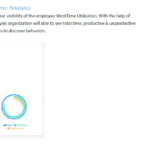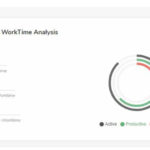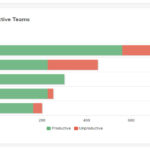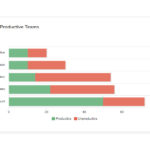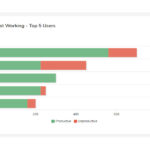
For most people, time management can be a daunting task. Well rest assured—it’s about to get a whole lot easier with some simple time tracking.
1. Stay Aligned with Your Most Important Goals
This tactic does more than help you stay focused on the task at hand. It can help you put your goals into perspective. Think about all the things on your to-do list.
What tasks have pending deadlines or need immediate attention? Which items on your list can wait a day or two? Wouldn’t it be nice to know how long each of those projects might take?
With a time, tracking tool, you can see exactly how much time you’re putting into a particular project. When you have a clear picture of how much time you’re spending on a task, you can better manage how and when you do that task. Tracking your time makes it easy to keep your most important projects at the top of your to-do list.
2. Understand How Much Time You Spend on Each Project
With the use of a time tracker, it will be easy to see how much time you spend on each item on your list. Once you start tracking projects, you can get a clear understanding of how long each task takes to finish. The results of this are two-fold:
One, when you know how long a project will take, you’ll be able to better prioritize your to-do list. It’s always a good idea to tackle the biggest projects at the beginning of the day so you don’t run out of time. Achieving the perfect work/life balance starts with getting out of the office on time.
Two, by tracking time spent on various tasks, you’ll be able to see how you’re actually spending your time. You’ll also be able to see how you’re wasting your time.
Time tracking helps shed light on what you actually do throughout the day. If a project that should take you 20 minutes actually takes you upwards of an hour to complete, you’re doing something wrong.
3. Identify Non-Essential or Time-Consuming Tasks
Tracking your time allows you to easily identify which tasks take up the most amount of your time. The results can be shocking.
We’re all guilty of it; we do things at work every day that isn’t an essential part of our workload. If you spend hours each day doing tasks that aren’t critical aspects of your job, remove them from your to-do list.
Identify which tasks are essential or non-essential, so you can know how to address each issue. Ask a coworker for help, or see if some of your tasks can be automated. Decide if some tasks aren’t worth doing in the first place.
Don’t waste your time doing tasks that don’t matter or won’t advance your career. Losing complete control of your schedule is detrimental to your well-being. With some simple time, tracking, you can make your workday more productive and more efficient.
4. Stay Focused on the Task at Hand
Tracking your time back to a certain task or project can help you stay focused.
Keep in mind, you can also use this tool in real time to better manage yourself. If you’ve hit the 45-minute mark on a project you have an hour to do, you know it’s time to crank through the rest to meet your goal. If you end up surpassing your one-hour deadline, you know you’ve got to work that much faster on the next task at hand.
If your team is overworked and/or understaffed, projects are bound to suffer. If you’ve tracked your time you can build a solid case that shows when and where your team needs more help.
It can also highlight which clients or projects are being over-served or underserved. If your smallest client takes up the majority of your time, some re-alignment may need to happen.
By Gopal Pandey


